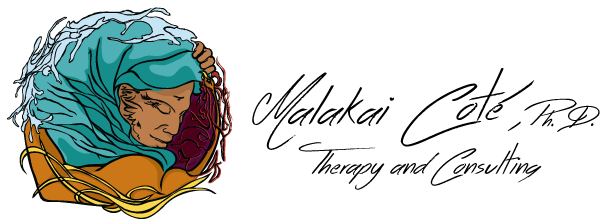Some of the Possible Benefits of Community Involvement Include:
- Reduced feelings of isolation and loneliness
- Opportunities to be validated in your unique experience
- Increased sense of connection and purpose
- A safe space to be honest and open with others
- Opportunity to give and receive support
- Decreases in depression related symptoms
- Opportunity to have fun and enjoy life in the company of others
The benefits of being in supportive and validating community are abundant, but what can make it so hard to create and maintain connection? What happens when you are the only one: person of color, gay man, trans person, Muslim, or any other identity? What do you do when there appears to be little celebration of the intersections of your identities? What happens when conflict with others and/or fears of social rejection make it more difficult to engage in community?
Given histories of social oppression, threats of violence and experiences of violence, family traumas, social anxieties, and at times experiences of social contempt, people can have legitimate fears about connecting. There are a number of current events that reinforce, for example, racial divides, gender-based violence, and not feeling safe in our own communities. If you look beyond the headlines, however, you can also see examples of people coming together with a common purpose and with the intention to support justice and the creation of healthy communities.
So, how do you find community when it seems hard?
1. Pace yourself, Be patient
Developing new connections, enhancing relationships, and healing relational disappointments may all take time. Allow yourself time, space, and grace to be fully present in the experience. It may feel too scary to completely jump in. That's ok. Test things out. Build off of small successes in building connections with others.
2. Do Your Research
Check out affinity groups, parenting groups/play groups, online groups, meet-up groups, peer support groups, professional organizations, religious or spiritual groups, and/or student groups that may share your values, interests, and/or important identities. Even if living in more remote or rural settings, there are several online forums and groups that may provide opportunity for connection that extend beyond geographic location.
3. Take a Risk By Trying Something New
Been interested in writing fiction, learning to swim, figure drawing, sewing, writing zines, sky diving, but have never taken the steps toward trying out new activities? Oftentimes, when people pursue their interests in the company of others with shared interests, individuals may find it easier to focus on the shared activity. This may provide opportunity to foster a little safety to build connection. Plus, the novelty of trying something new may be exciting, engaging, and enriching! Even if you do not find community, you still have experienced something new that may have been on your "bucket list."
4. Try, Try Again
You may run into disappointments with others. It is true that racism, sexism, transphobia, heterosexism and other forms of oppression are real and pervasive. Plus, not everyone gets along or has complimentary personalities, work styles, and ways of being in the world. Experinces of social oppression or disconnect can often be triggering, traumatic, and distancing. It becomes important to discern if it's time to leave a toxic interaction and find other people who are supportive, or if appropriate, to share with others the impact of certain behaviors to provide greater opportunities for connection. It can often be a judgment call, however, if you feel unsafe or have been harassed it may be helpful to exit the situation.
5. Be a Friend, Make a Friend
Our engagement in relationship often requires mutuality, respect, and trust. Being a friend often means being interested in others, learning what feels supportive to others, and following through as a friend. It can be common to struggle with thoughts like: Do they like me? Do I know enough? Am I "down" enough? Am I enough? These types of thoughts can make it difficult to be present with others and also to hold self-compassion. Attempt to shift the focus from self-critical thoughts to noticing others and displaying an open curiosity about their experiences.
As an adult, it can oftentimes be more difficult to create new connections and build new community, despite these challenges there may be opportunity as well. Find your people!
